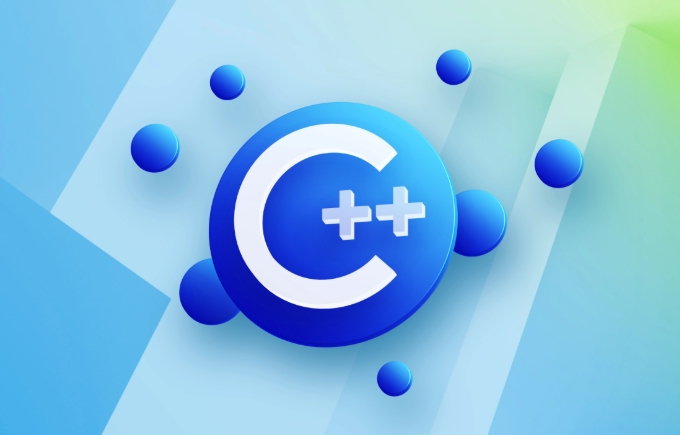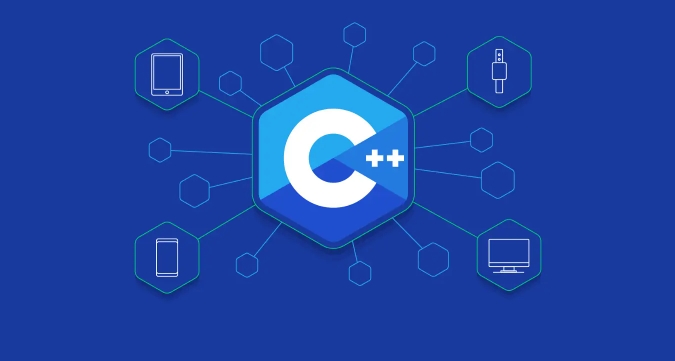What is std::filesystem in C 17?
std::filesystem in C 17 is a standard library module for cross-platform file system operations. It provides core components such as path, file_status, directory_entry, etc., and supports functions such as checking file existence, traversing directories, creating and deleting directories and processing paths. 1. It replaces the previous practice of relying on platform API or third-party libraries; 2. It supports common operations such as exists(), create_directory(), directory_iterator, etc.; 3. Automatically handle path format differences in different systems; 4. Pay attention to exception handling, platform differences and performance issues when using it.

std::filesystem in C 17 is a standard library module that provides a set of classes and functions for manipulating files, directories, and paths in a portable way. Before C 17, developers often relied on platform-specific APIs or third-party libraries like Boost to handle file system operations. Now, with std::filesystem , you can write code that works across different operating systems without needing external dependencies.

Key Features of std::filesystem
The main components of std::filesystem include:

- path : Represents a filesystem path (file or directory), handling string conversations, concatenation, and more.
- file_status : Holds information about a file's type and permissions.
- directory_entry : Represents an entry in a directory.
- directory_iterator : Iterates through the contents of a directory.
- recursive_directory_iterator : Traverses directories recursively.
- Functions for checking file existence (
exists()), copying files (copy_file()), creating directories (create_directory()), getting file size (file_size()), and more.
These tools make it easier to work with files and folders without relying on OS-specific calls.
Common Use Cases and Examples
Here are some everyday tasks you can do with std::filesystem .

Check if a File Exists
This is one of the most basic but essential operations:
#include <filesystem>
namespace fs = std::filesystem;
if (fs::exists("example.txt")) {
std::cout << "File exists\n";
} You can also check if it's a regular file or a directory using is_regular_file() or is_directory() .
List Files in a Directory
Use directory_iterator to loop through files:
for (const auto& entry : fs::directory_iterator(".")) {
std::cout << entry.path() << "\n";
}This prints all files and folders in the current working directory.
If you need to go into subdirectories too, just replace directory_iterator with recursive_directory_iterator .
Create and Remove Directories
Creating a directory is straightforward:
fs::create_directory("new_folder");And removing one:
fs::remove_all("new_folder"); // Removes even if not empty Note: remove() deletes only empty directories. For non-empty ones, use remove_all() .
Handling Paths Correctly
One of the biggest advantages of std::filesystem is how it handles paths consistently across platforms. You don't have to worry about backslashes vs. forward slashes — it takes care of that under the hood.
For example:
fs::path p = "data" / "images" / "logo.png"; std::cout << p; // Outputs "data/images/logo.png" on Linux/macOS, "data\images\logo.png" on Windows
You can also extract parts of a path easily:
-
p.parent_path()returns"data/images" -
p.filename()gives"logo.png" -
p.extension()gives".png"
This makes building and parsing paths much cleaner than using string manipulation.
Things to Watch Out For
While std::filesystem is powerful, there are a few gotchas:
- It may throw exceptions by default. If you don't want that, pass an error code object as the last argument to many functions.
- Not all operating systems support every feature — for example, certain permission-related functions behave differently on Windows and Unix-like systems.
- Performance can be an issue when iterating large directories or deeply nested structures.
So always test your code on target platforms and consider wrapping filesystem calls in try-catch blocks unless you're sure they won't fail.
That's the core of what you need to know about std::filesystem . It's not overly complicated, but it does take some time to get used to the types and methods. Once you're familiar with them, though, it becomes a solid part of your C toolkit for file management.
The above is the detailed content of What is std::filesystem in C 17?. For more information, please follow other related articles on the PHP Chinese website!

Hot AI Tools

Undress AI Tool
Undress images for free

Undresser.AI Undress
AI-powered app for creating realistic nude photos

AI Clothes Remover
Online AI tool for removing clothes from photos.

Clothoff.io
AI clothes remover

Video Face Swap
Swap faces in any video effortlessly with our completely free AI face swap tool!

Hot Article

Hot Tools

Notepad++7.3.1
Easy-to-use and free code editor

SublimeText3 Chinese version
Chinese version, very easy to use

Zend Studio 13.0.1
Powerful PHP integrated development environment

Dreamweaver CS6
Visual web development tools

SublimeText3 Mac version
God-level code editing software (SublimeText3)

Hot Topics
 1794
1794
 16
16
 1740
1740
 56
56
 1591
1591
 29
29
 1474
1474
 72
72
 267
267
 587
587
 C tutorial for people who know Python
Jul 01, 2025 am 01:11 AM
C tutorial for people who know Python
Jul 01, 2025 am 01:11 AM
People who study Python transfer to C The most direct confusion is: Why can't you write like Python? Because C, although the syntax is more complex, provides underlying control capabilities and performance advantages. 1. In terms of syntax structure, C uses curly braces {} instead of indentation to organize code blocks, and variable types must be explicitly declared; 2. In terms of type system and memory management, C does not have an automatic garbage collection mechanism, and needs to manually manage memory and pay attention to releasing resources. RAII technology can assist resource management; 3. In functions and class definitions, C needs to explicitly access modifiers, constructors and destructors, and supports advanced functions such as operator overloading; 4. In terms of standard libraries, STL provides powerful containers and algorithms, but needs to adapt to generic programming ideas; 5
 C tutorial on the Standard Template Library (STL)
Jul 02, 2025 am 01:26 AM
C tutorial on the Standard Template Library (STL)
Jul 02, 2025 am 01:26 AM
STL (Standard Template Library) is an important part of the C standard library, including three core components: container, iterator and algorithm. 1. Containers such as vector, map, and set are used to store data; 2. Iterators are used to access container elements; 3. Algorithms such as sort and find are used to operate data. When selecting a container, vector is suitable for dynamic arrays, list is suitable for frequent insertion and deletion, deque supports double-ended quick operation, map/unordered_map is used for key-value pair search, and set/unordered_set is used for deduplication. When using the algorithm, the header file should be included, and iterators and lambda expressions should be combined. Be careful to avoid failure iterators, update iterators when deleting, and not modify m
 How to use cin and cout for input/output in C ?
Jul 02, 2025 am 01:10 AM
How to use cin and cout for input/output in C ?
Jul 02, 2025 am 01:10 AM
In C, cin and cout are used for console input and output. 1. Use cout to read the input, pay attention to type matching problems, and stop encountering spaces; 3. Use getline(cin, str) when reading strings containing spaces; 4. When using cin and getline, you need to clean the remaining characters in the buffer; 5. When entering incorrectly, you need to call cin.clear() and cin.ignore() to deal with exception status. Master these key points and write stable console programs.
 C tutorial for graphics programming with OpenGL
Jul 02, 2025 am 12:07 AM
C tutorial for graphics programming with OpenGL
Jul 02, 2025 am 12:07 AM
As a beginner graphical programming for C programmers, OpenGL is a good choice. First, you need to build a development environment, use GLFW or SDL to create a window, load the function pointer with GLEW or glad, and correctly set the context version such as 3.3. Secondly, understand OpenGL's state machine model and master the core drawing process: create and compile shaders, link programs, upload vertex data (VBO), configure attribute pointers (VAO) and call drawing functions. In addition, you must be familiar with debugging techniques, check the shader compilation and program link status, enable the vertex attribute array, set the screen clear color, etc. Recommended learning resources include LearnOpenGL, OpenGLRedBook and YouTube tutorial series. Master the above
 Using std::chrono in C
Jul 15, 2025 am 01:30 AM
Using std::chrono in C
Jul 15, 2025 am 01:30 AM
std::chrono is used in C to process time, including obtaining the current time, measuring execution time, operation time point and duration, and formatting analysis time. 1. Use std::chrono::system_clock::now() to obtain the current time, which can be converted into a readable string, but the system clock may not be monotonous; 2. Use std::chrono::steady_clock to measure the execution time to ensure monotony, and convert it into milliseconds, seconds and other units through duration_cast; 3. Time point (time_point) and duration (duration) can be interoperable, but attention should be paid to unit compatibility and clock epoch (epoch)
 What is the Standard Template Library (STL) in C ?
Jul 01, 2025 am 01:17 AM
What is the Standard Template Library (STL) in C ?
Jul 01, 2025 am 01:17 AM
C STL is a set of general template classes and functions, including core components such as containers, algorithms, and iterators. Containers such as vector, list, map, and set are used to store data. Vector supports random access, which is suitable for frequent reading; list insertion and deletion are efficient but accessed slowly; map and set are based on red and black trees, and automatic sorting is suitable for fast searches. Algorithms such as sort, find, copy, transform, and accumulate are commonly used to encapsulate them, and they act on the iterator range of the container. The iterator acts as a bridge connecting containers to algorithms, supporting traversal and accessing elements. Other components include function objects, adapters, allocators, which are used to customize logic, change behavior, and memory management. STL simplifies C
 C tutorial for competitive programming
Jul 02, 2025 am 12:54 AM
C tutorial for competitive programming
Jul 02, 2025 am 12:54 AM
Learn C You should start from the following points when playing games: 1. Proficient in basic grammar but do not need to go deep into it, master the basic contents of variable definition, looping, condition judgment, functions, etc.; 2. Focus on mastering the use of STL containers such as vector, map, set, queue, and stack; 3. Learn fast input and output techniques, such as closing synchronous streams or using scanf and printf; 4. Use templates and macros to simplify code writing and improve efficiency; 5. Familiar with common details such as boundary conditions and initialization errors.
 What is the volatile keyword in C ?
Jul 04, 2025 am 01:09 AM
What is the volatile keyword in C ?
Jul 04, 2025 am 01:09 AM
volatile tells the compiler that the value of the variable may change at any time, preventing the compiler from optimizing access. 1. Used for hardware registers, signal handlers, or shared variables between threads (but modern C recommends std::atomic). 2. Each access is directly read and write memory instead of cached to registers. 3. It does not provide atomicity or thread safety, and only ensures that the compiler does not optimize read and write. 4. Constantly, the two are sometimes used in combination to represent read-only but externally modifyable variables. 5. It cannot replace mutexes or atomic operations, and excessive use will affect performance.





